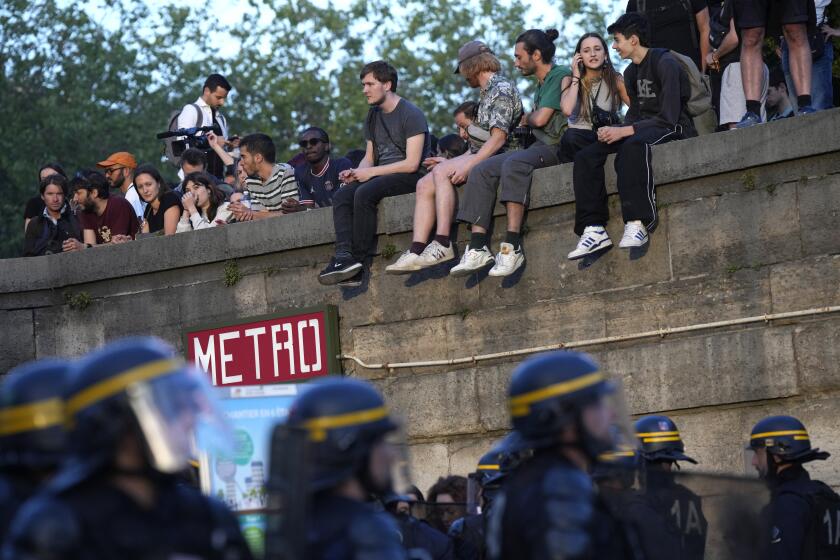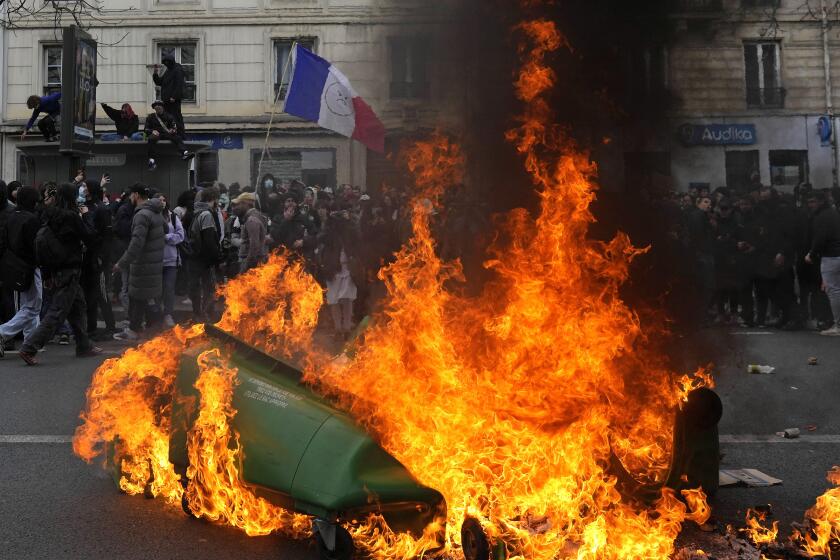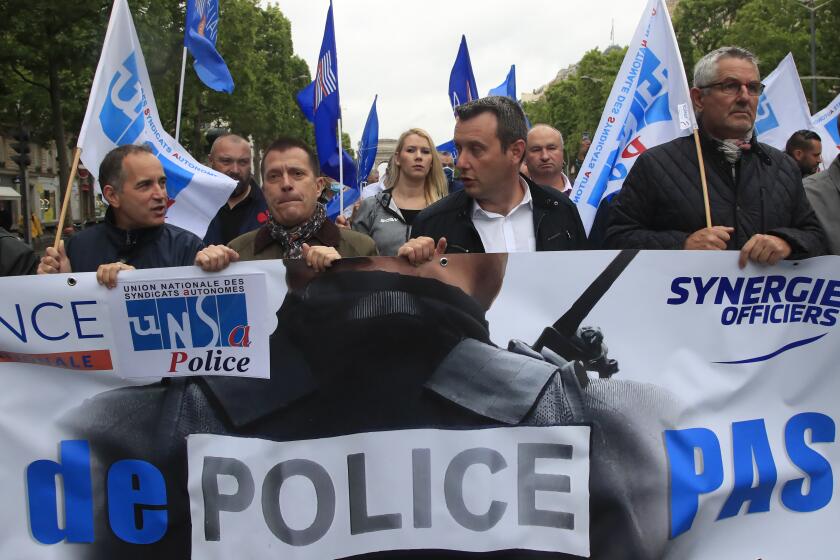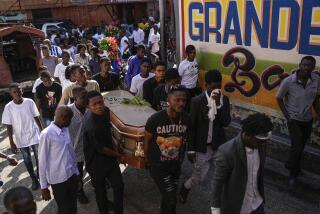France works overtime to mete out swift, and stern, punishment after riots over teen’s death
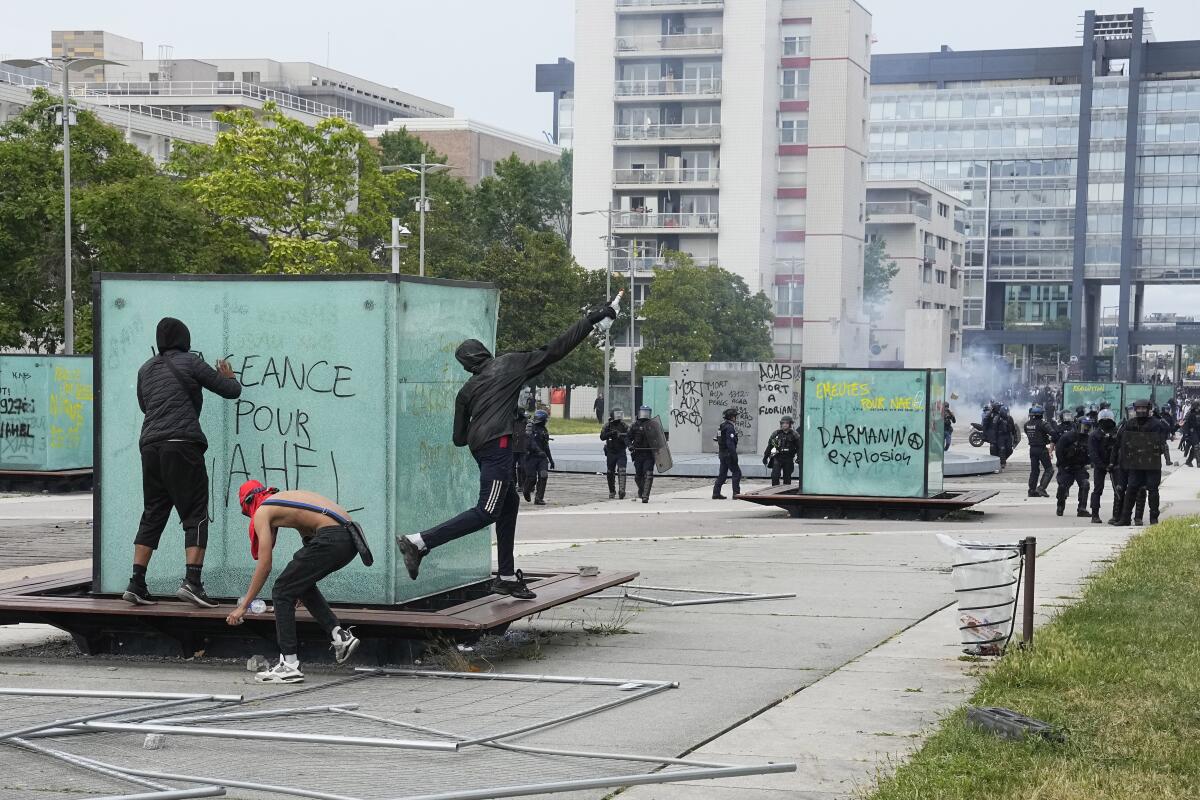
CRETEIL, France — At 19, he was the oldest of the group of teens accused of hurling Molotov cocktails at the police station of their suburban hometown.
“Why?” the judge asked Riad, who was taken into custody after he was identified in video surveillance images of the group from June 29, the second night of nationwide unrest following the police shooting of another suburban teenager outside Paris.
“For justice for Nahel,” Riad said. Slumped and slightly disheveled after five nights in jail, he said he didn’t know about the peaceful march organized by Nahel Merzouk’s family. He explained that the cellphone photo of him holding a Molotov cocktail was “for social media. To give an image.”
In all, more than 3,600 people, with an average age of 17, have been detained in the unrest across France since the June 27 death of Nahel, who was also 17, according to the Interior Ministry. The violence, which left more than 800 law enforcement officers injured, has largely subsided in recent days.
French courts are working overtime to process the arrests, including opening their doors through the weekend, with fast-track hearings around an hour long and same-day sentencing.
The prosecutor noted that Riad had learned where to acquire incendiary devices on Snapchat, the social network that the French government has singled out, along with TikTok, as fueling the unrest. Riad’s lawyer noted that his record was clean and that the young man was not blamed for any significant damage or injuries.
The events in France after police shot a teen in a Paris suburb are drawing parallels to the U.S. racial reckoning after George Floyd’s murder.
By the end of Tuesday, Riad’s sentence was fixed: three years in prison, with a minimum of 18 months behind bars, and a ban from his hometown of Alfortville for the duration of the term.
He collapsed on the stand. “I’m not ready to go to prison. I’m really not ready,” he said, blowing a furtive kiss to his mother as he was led away.
Outside the packed courtroom, a pair of girls asked someone exiting what sentence he’d received. “Three years? That’s insane!” one exclaimed.
But the mood in France is stern after unrest that officials estimate caused more than $1 billion in damage. Nahel’s fatal shooting by police came during a traffic stop, was captured on video and immediately stirred up long-simmering tensions between police and young people — nearly all ethnic minorities and overwhelmingly French-born — in housing projects and disadvantaged suburbs.
Paris is cleaning up mountains of trash and debris from its streets as striking sanitation workers return to work after protests over pension changes.
Justice Minister Eric Dupond-Moretti issued an order Friday that demanded a “ strong, firm and systematic” judicial response. Hearings began the following day, as unrest continued into the night.
“This is not hasty justice. The message I want to send is that justice is functioning normally in the face of an exceptional situation,” said Peimane Ghaleh-Marzban, the president of the tribunal in Bobigny.
By Tuesday night, a total of 990 people had gone before a tribunal, and about one-third received jail terms, according to government spokesman Olivier Veran. A third of those detained were minors, he said.
“You have many first-time offenders — people who are not deep in delinquency, many minors in school who don’t [engage in] habitual criminal activity,” Ghaleh-Marzban said.
One of the most complex phases of the reconstruction of fire-ravaged Notre Dame de Paris is underway: the rebuilding of the cathedral’s famous spire.
Despite that, the inclination to convict with jail time appeared to prevail.
In Lyon, France’s second-most populous metropolitan area, the prosecutor said Thursday that of 26 adults who have appeared before the fast-track courts so far, 22 were convicted and sentenced to jail, three requested more time to prepare a defense and only one was acquitted. According to BFM television Thursday, 76% of people in the fast-track trials were placed in detention.
The United Nations’ human rights office said the unrest showed that it was time for France to reckon with its history of racism in policing, rather than just lash out in punishment. The office said the French government needed to ensure that use of force “always respects the principles of legality, necessity, proportionality, non-discrimination, precaution and accountability.”
But many French lawmakers are demanding maximum punishment — and fast.
Start your day right
Sign up for Essential California for the L.A. Times biggest news, features and recommendations in your inbox six days a week.
You may occasionally receive promotional content from the Los Angeles Times.
Olivier Marleix, a lawmaker from the conservative Republicans party, called for all the cases involving the unrest to be handled within 100 days.
“Not to punish this would be an injury to all our law enforcement. Not to punish this would be a failure to understand the gravity of the threat to France,” he said Tuesday in the National Assembly.
By contrast, the officer accused in Nahel’s death has been charged with voluntary homicide but has yet to appear in a courtroom or even have a court date set.
Rayan, an 18-year-old detained with a group of about 30 young people, was accused of filming a 14-second video of incendiaries being hurled at his local police station in Kremlin-Bicetre. In the video, he cries out: “Light them up!”
French police protest what they see as the government’s lack of support after new limits on their arrest practices, including a ban on chokeholds.
It was the first time he has ever been arrested. He was taken to Fleury-Merogis prison, the European Union’s largest, and wept on the stand Tuesday. Prosecutors, who accused him of tripping a police officer while fleeing, asked for a 30-month sentence and for him to be barred from his hometown.
“I’m a good person. I’ve never had a problem with police. I have a family, I work,” he said, burying his face in his hands. “I don’t even know what I’m doing here.”
His brief hearing ended with a 10-month suspended sentence. His parents picked him up the same night from prison to take him home.
More to Read
Sign up for Essential California
The most important California stories and recommendations in your inbox every morning.
You may occasionally receive promotional content from the Los Angeles Times.
